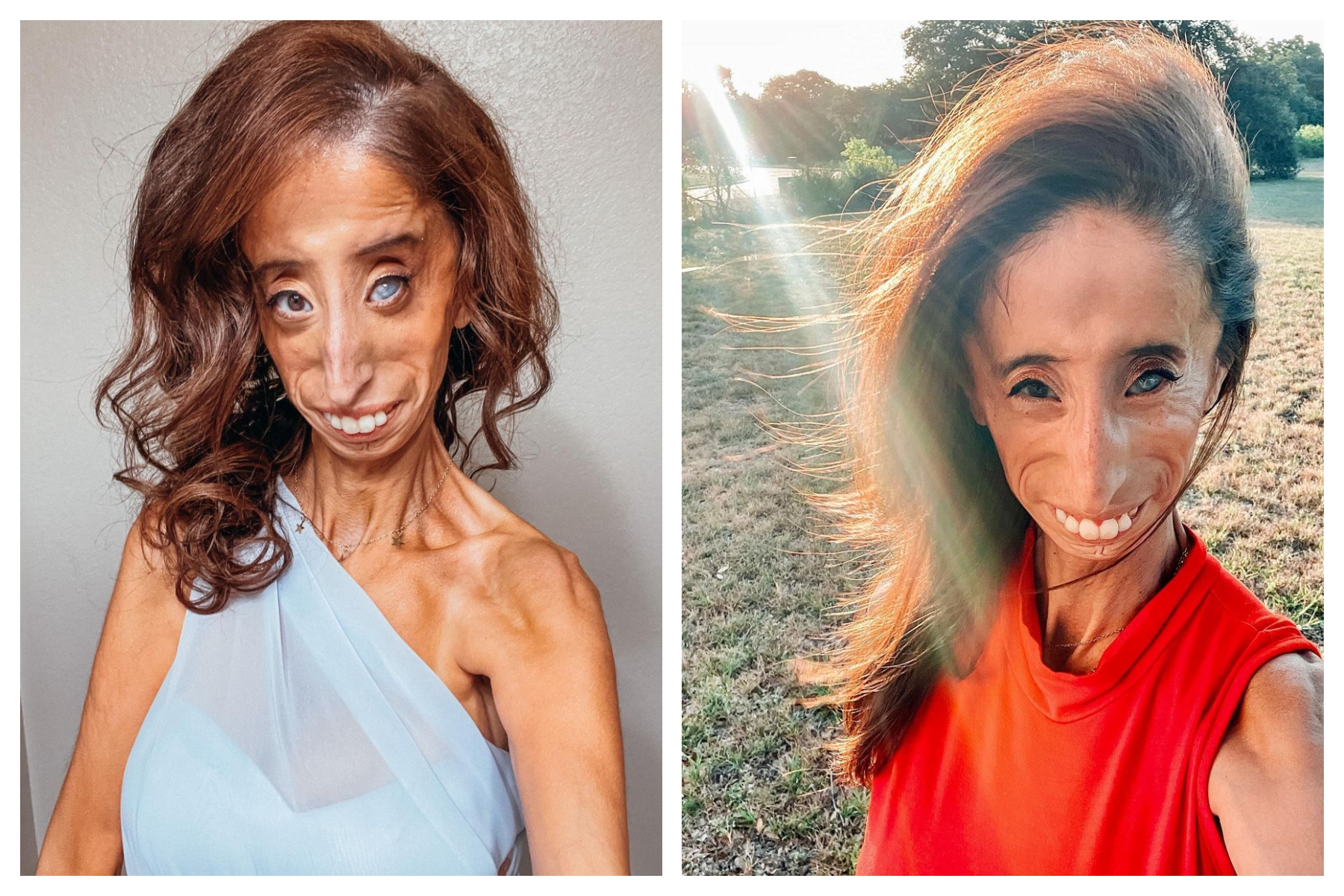Skinniest people in the world often captivate public attention due to their unique physical appearance and the stories behind their extreme thinness. Whether driven by medical conditions, lifestyle choices, or cultural factors, their lives are often shrouded in curiosity and concern. In this article, we delve into the fascinating yet complex world of individuals who hold the title of being the skinniest in the world. Understanding their journeys can shed light on health, body image, and the societal pressures surrounding weight.
Being underweight or extremely thin is not just a physical trait; it can also be a reflection of deeper issues such as health challenges, societal expectations, or personal choices. While some of these individuals achieve their physique intentionally, others may struggle with medical conditions that lead to extreme weight loss. The stories of the skinniest people in the world provide a unique lens through which we can examine the broader implications of body image, health, and human resilience.
As we explore this topic, we will also address the ethical considerations surrounding discussions of extreme thinness. It is essential to approach this subject with sensitivity, focusing on health and well-being rather than promoting unhealthy body standards. By the end of this article, you will have a comprehensive understanding of the factors that contribute to extreme thinness and the lessons we can learn from the lives of these individuals.
Read also:What Does Jason Desjardins Do For A Living A Comprehensive Guide
Table of Contents
- Biographies of the Skinniest People in the World
- Medical Conditions That Cause Extreme Thinness
- Lifestyle Choices and Extreme Thinness
- Cultural Factors Influencing Body Image
- Health Risks Associated with Extreme Thinness
- Psychological Impact of Being Underweight
- Societal Pressures and Unrealistic Beauty Standards
- Nutrition Tips for Maintaining a Healthy Weight
- Expert Insights on Body Image and Health
- Conclusion and Call to Action
Biographies of the Skinniest People in the World
One of the most well-known individuals often referred to as one of the skinniest people in the world is Michael Katchabaw, a Canadian man who gained fame for his incredibly low body weight. His story has been featured in various media outlets, highlighting both his struggles and triumphs. Below is a brief overview of his life and achievements.
| Full Name | Date of Birth | Height | Weight | Nationality | Notable Achievements |
|---|---|---|---|---|---|
| Michael Katchabaw | January 15, 1985 | 5'10" | 78 lbs (35 kg) | Canadian | Featured in documentaries, motivational speaker |
Michael's journey to becoming one of the skinniest people in the world was not without challenges. He has openly discussed his struggles with eating disorders and mental health issues, which have significantly impacted his physical appearance. Despite these challenges, Michael has become an advocate for mental health awareness and body positivity.
Other Notable Individuals
In addition to Michael Katchabaw, there are other individuals who have gained recognition for their extreme thinness. These include:
- Aneta Kowalczyk: A Polish model known for her ultra-thin frame and unique runway presence.
- Denis Petrinic: A Russian man who holds the Guinness World Record for the lowest body weight at 65 pounds (29.5 kg).
Medical Conditions That Cause Extreme Thinness
Extreme thinness is not always a result of lifestyle choices or societal pressures. In many cases, medical conditions play a significant role in an individual's inability to maintain a healthy weight. Understanding these conditions can provide valuable insights into the complexities of the human body.
Eating Disorders
Eating disorders such as anorexia nervosa and bulimia nervosa are among the most common causes of extreme thinness. These conditions are characterized by unhealthy eating habits and distorted body image, often leading to severe weight loss. According to the National Eating Disorders Association, approximately 9% of the global population is affected by eating disorders, with women being disproportionately impacted.
Metabolic Disorders
Metabolic disorders such as hyperthyroidism can also contribute to extreme thinness. Hyperthyroidism occurs when the thyroid gland produces excessive amounts of thyroid hormones, leading to an accelerated metabolism. Individuals with this condition often experience rapid weight loss despite having a normal or increased appetite.
Read also:Dana Wilkey Net Worth A Comprehensive Guide To His Wealth And Career
Genetic Factors
Genetic factors can predispose individuals to extreme thinness. Conditions such as Marfan syndrome and Ehlers-Danlos syndrome are associated with a naturally slender build and difficulty gaining weight. These conditions often affect connective tissues, leading to unique physical characteristics.
Lifestyle Choices and Extreme Thinness
While medical conditions are a significant factor, lifestyle choices also play a crucial role in determining body weight. For some individuals, extreme thinness is a result of deliberate choices such as extreme dieting, excessive exercise, or adherence to specific dietary philosophies.
Extreme Dieting
Extreme dieting involves severely restricting calorie intake to achieve rapid weight loss. While this approach may lead to short-term results, it is often unsustainable and can have detrimental effects on physical and mental health. Common extreme diets include:
- Keto Diet: A high-fat, low-carbohydrate diet that forces the body into ketosis.
- Veganism: A plant-based diet that excludes all animal products.
Excessive Exercise
Excessive exercise is another lifestyle factor that can contribute to extreme thinness. Individuals who engage in intense physical activity without adequate nutrition may experience significant weight loss. While exercise is essential for maintaining health, overtraining can lead to burnout and other health complications.
Cultural Factors Influencing Body Image
Cultural factors play a significant role in shaping perceptions of body image and weight. In many societies, thinness is often equated with beauty, success, and desirability. This cultural emphasis on thinness can influence individuals' attitudes toward their bodies and contribute to unhealthy behaviors.
Media Influence
The media has a profound impact on body image perceptions. Magazines, television shows, and social media platforms often promote unrealistic beauty standards, showcasing images of extremely thin individuals as the ideal. This constant exposure can lead to body dissatisfaction and unhealthy weight loss practices.
Cultural Beauty Standards
Different cultures have varying beauty standards, with some placing a higher value on thinness than others. For example, in Western societies, thinness is often associated with wealth and status, while in some African and South Asian cultures, a fuller figure is considered more desirable. Understanding these cultural differences is essential for addressing body image issues on a global scale.
Health Risks Associated with Extreme Thinness
While extreme thinness may be celebrated in certain contexts, it is important to recognize the health risks associated with being underweight. These risks can affect both physical and mental well-being, making it crucial to address the underlying causes of extreme thinness.
Physical Health Risks
Extreme thinness can lead to a range of physical health issues, including:
- Osteoporosis: Weakened bones due to insufficient calcium and vitamin D intake.
- Cardiovascular Problems: Increased risk of heart disease and irregular heartbeats.
- Immune System Weakness: Reduced ability to fight off infections and illnesses.
Mental Health Risks
Mental health risks associated with extreme thinness include anxiety, depression, and eating disorders. These conditions can create a vicious cycle, where poor mental health exacerbates physical health issues and vice versa.
Psychological Impact of Being Underweight
The psychological impact of being underweight can be profound, affecting an individual's self-esteem, relationships, and overall quality of life. Addressing these psychological challenges is essential for promoting holistic health and well-being.
Self-Esteem
Individuals who are underweight may struggle with low self-esteem due to societal pressures and negative body image. This can lead to feelings of inadequacy and a lack of confidence in social and professional settings.
Relationships
Extreme thinness can also impact relationships, as friends and family members may express concern or frustration about an individual's weight. These dynamics can create tension and strain, making it difficult to maintain healthy connections.
Societal Pressures and Unrealistic Beauty Standards
Societal pressures and unrealistic beauty standards contribute significantly to the prevalence of extreme thinness. These pressures can manifest in various ways, from workplace discrimination to social media comparisons.
Workplace Discrimination
Individuals who are underweight may face discrimination in the workplace, where appearance is often linked to professionalism and competence. This bias can limit career opportunities and create additional stress for those affected.
Social Media Comparisons
Social media platforms are rife with images of extremely thin individuals, creating unrealistic expectations for body image. Constant comparisons to these idealized standards can lead to feelings of inadequacy and dissatisfaction with one's own appearance.
Nutrition Tips for Maintaining a Healthy Weight
Achieving and maintaining a healthy weight is essential for overall well-being. By adopting balanced nutrition and healthy lifestyle habits, individuals can avoid the risks associated with extreme thinness.
Balanced Diet
A balanced diet includes a variety of foods from all food groups, ensuring adequate intake of essential nutrients. Key components of a balanced diet include:
- Fruits and Vegetables: Rich in vitamins, minerals, and fiber.
- Proteins: Essential for muscle repair and growth.
- Whole Grains: Provide sustained energy and fiber.
Hydration
Staying hydrated is crucial for maintaining overall health. Drinking adequate amounts of water supports digestion, circulation, and temperature regulation.
Expert Insights on Body Image and Health
Experts in the fields of nutrition, psychology, and medicine offer valuable insights into the complexities of body image and health. By consulting these professionals, individuals can gain a deeper understanding of the factors that contribute to extreme thinness and how to address them effectively.
Nutritional Experts
Nutritional experts emphasize the importance of a balanced diet and regular exercise for maintaining a healthy weight. They also stress the need for personalized nutrition plans that take into account individual health needs and goals.
Mental Health Professionals
Mental health professionals highlight the psychological impact of extreme thinness and the importance of addressing underlying issues such as eating disorders and body image concerns. Therapy and counseling can provide valuable support for individuals struggling with these challenges.
Conclusion and Call to Action
In conclusion, the stories of the skinniest people in the world offer valuable insights into the complexities of health, body image, and societal pressures. Whether driven by medical conditions, lifestyle choices, or cultural factors, extreme thinness is a multifaceted issue that requires a compassionate and informed approach.
We encourage you to reflect on the information presented in this article and consider how it applies to your own life. If you or someone you know is struggling with extreme thinness or body image issues, seek professional guidance and support. Share this article with others to raise awareness and promote a healthier understanding of body image and health. Together, we can create a more inclusive and supportive environment for all individuals, regardless of their size or shape

